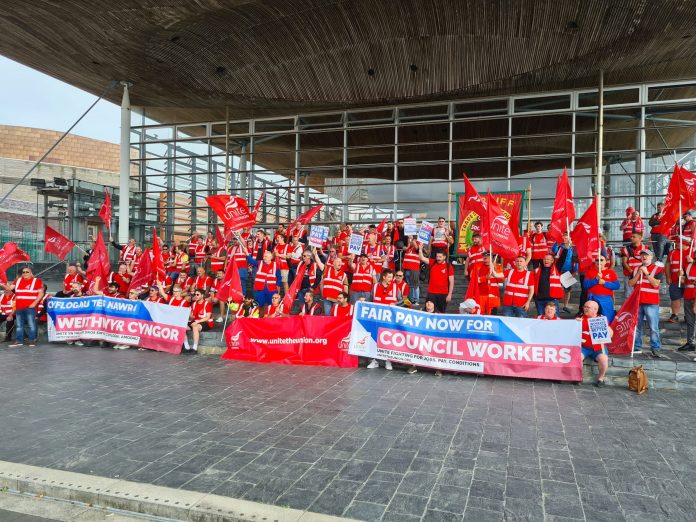Lessons from Wales
Mark Evans, Swansea and West Wales Socialist Party, and president Swansea and District Trades Council
An article in February’s Labour Research magazine, ‘How will new partnership law strengthen workers’ voice?’, highlights that some unions have hailed the new Social Partnership and Public Procurement (Wales) Act 2023 as “historic” and “momentous”.
Wales Trades Union Congress (TUC) policy officer Nisreen Mansour said the new act “is a huge win” for unions and is “hugely important.” Later Nisreen claimed: “It is recognising in law that worker voice through trade unions should balance out the interests of their employers.”
Both Jess Turner, regional secretary of Unison, and GMB regional political officer Tom Hoyles claim that social partnership builds on how partners worked together during the pandemic and made for better decision making. However, this ignores the fact that the Labour Welsh government dismissed the advice of trade unions and reopened schools far too early during the pandemic, clearly a decision made in the interests of big business. This gets to the rub: is it in the interests of trade union members to be in partnership with their employers and Welsh government?
Do the trade unions and the employers have ‘shared priorities’ and a ‘shared vision’, as claimed by the Wales TUC? How can trade unions that are defending their members’ interests share a vision with a government and councils that are administering devastating Tory cuts?
The answer is the strike action taken by a number of unions against the Labour Welsh government on pay. Having a seat at the table is not enough. Facing a horrendous ongoing cost-of-living crisis and vicious cuts to public services, workers will want to know what so-called partnership puts on the table. Workers will want more than to be ‘heard’ – they will want tangible benefits from negotiations or will be forced into taking industrial action.
1974-79 Labour government
Those of us longer in the tooth recall this is not the first time social partnership has been pushed. What about the ‘social contract’ under the 1974-79 Labour government, supposedly a contract between the Labour UK government, industry and the unions. There was workers’ participation, workers were on company boards, and all three were expected to compromise. Trade union members, because of their leaders accepting an incomes policy, ended up with real cuts to wages while inflation soared.
That government ended up acting in the interests of big business and international capitalism and attacking working-class people’s living standards. Pressure from below forced trade union leaders to take strike action, leading to the ‘Winter of Discontent’ (1978-79).
There can be little doubt that Labour leader Keir Starmer, who has spent the bulk of his time courting big business, will also act in the interests of the super-rich and accept the spending limits of capitalism in crisis. Social partnership therefore means ‘compromising’ with public sector employers by accepting cuts, job losses and further losses of services.
When Swansea and District Trades Council put forward a motion opposing social partnership at Wales TUC in 2021, a third of conference supported the motion. In Cymru/Wales, public services are on their knees, with high levels of poverty. There can be no collaboration with Welsh Labour or Starmer-led Labour governments and public service employers who do not oppose Tory spending limits and that act in the interests of big business by underfunding and cutting public services.
The aim of social partnership is to create the illusion that there is an alternative to taking industrial action. Like King Canute, they will not be able to hold back the tide as workers are forced to take action against the ravages of capitalism. One of the consequences of the recent strike action by many unions is that members can see that strike action works, and that we must rely on our collective strength to defend our interests. That is far more powerful than having a ‘seat at the table’ of the employer.







